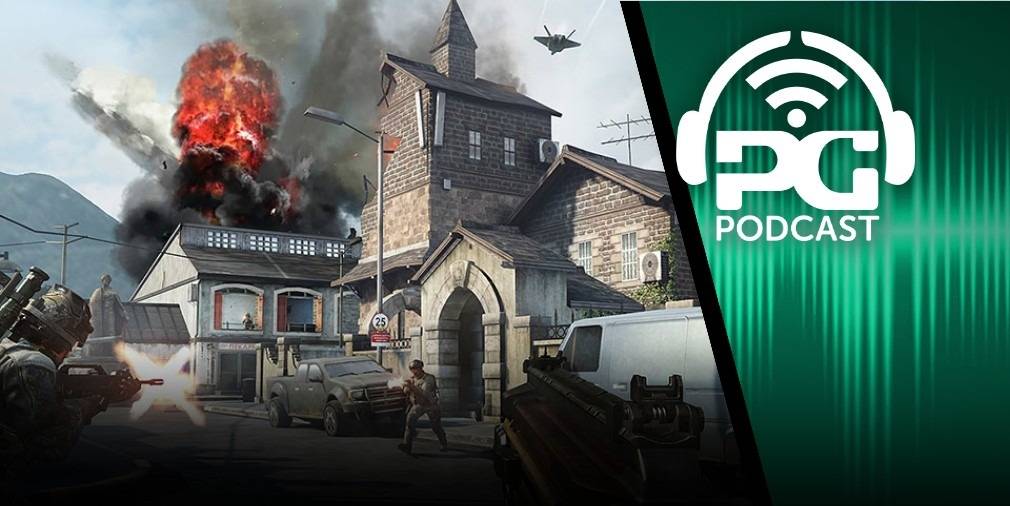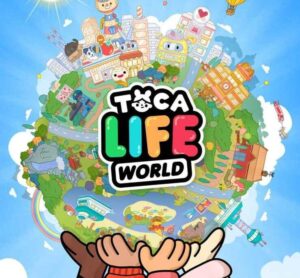Navigating the Mobile Gaming Landscape: Inside The Pocket Gamer Podcast Episode 23
Popular Now
 Stumble Guys
Stumble Guys
 Brawl Stars
Brawl Stars
 Valorant
Valorant
 Roblox
Roblox
 Free Fire Max
Free Fire Max
 FIFA 23
FIFA 23
 Gacha Club
Gacha Club
 PUBG Mobile
PUBG Mobile
 Minecraft
Minecraft
 God of War Ragnarök
God of War Ragnarök 
In a rapidly evolving mobile gaming industry, staying ahead of strategic shifts is paramount for developers, investors, and competitive players alike. The Pocket Gamer Podcast Episode 23, titled “A new age (Rating), Reverse Rage Gaming and Rebranding”, delivered a comprehensive and timely discussion on three critical vectors shaping the current market. Released on March 5, 2025, this 52-minute episode offers deep insights into user experience, competitive innovation, and corporate strategy—all essential topics for understanding the flow of high-value keywords and competitive strategy in the mobile games ecosystem.
The episode’s core discussion points are highly relevant to mobile gaming news, particularly for those tracking premium content, user acquisition (UA) trends, and monetization models.
The New Age of Mobile Game Rating and Review Culture
The first major segment, “A new age (Rating)”, tackles the shifting dynamics of App Store ratings and the increasing sophistication of game review processes. The podcast hosts—the expert journalists from the Pocket Gamer editorial team—delve into how stricter guidelines and an informed player base are making high ratings a true testament to game quality, rather than just a marketing metric. This change directly impacts mobile game SEO and discoverability.
- The Imperative of Quality: The discussion highlights that a 5-star rating now requires sustained excellence across multiple updates, reflecting the Live Service Game model. Low-quality releases are immediately flagged, impacting app store optimization (ASO).
- Rating System Vulnerabilities: The team debates the ongoing challenge of combating review bombing and incentivized reviews, a persistent threat to honest game assessment and market integrity.
- Impact on CPC Keywords: Publishers must now truly deliver on promises associated with expensive keywords like “Best Mobile Game” or “Top Rated RPG,” as skeptical users check reviews more rigorously than ever before. This elevates the actual value of positive user feedback.
The hosts posit that this “new age” demands transparency, forcing developers to prioritize long-term player satisfaction over short-term monetization gains.
Reverse Rage Gaming: A Paradigm Shift in Competitive Review
Perhaps the most unique and trend-setting segment of the episode is the deep-dive into the concept of Reverse Rage Gaming. This term, popularized within the gaming community, refers to the practice of reviewers or players deliberately highlighting positive aspects of a game that is widely dismissed or poorly received. It’s a counter-culture movement against the prevalence of hyperbolic negativity often found in online critique, and a goldmine for viral marketing and niche user engagement.
The hosts explore the strategic implications for developers and marketers:
- Niche Market Discovery: Identifying the genuine, core audience for a ‘maligned’ game can be key to a successful pivot strategy. Reverse Rage content helps identify these dedicated fan segments.
- The Power of Irony in SEO: Content creators using the phrase “Reverse Rage Gaming” often generate significant search traffic, providing a high-volume, low-competition opportunity for associated game titles to be discovered.
- Review Game Mechanics: The segment offers a thoughtful look at what mechanics—like high skill ceilings, complex gacha systems, or unconventional graphics—often trigger the initial “rage” but also inspire the “reverse rage” defense from a passionate minority. This is a critical lesson in understanding player loyalty metrics.
The analysis serves as a crucial reminder that not all negative feedback is a death sentence; sometimes, it’s a beacon for a fiercely loyal, albeit small, player base that will drive high LTV (Lifetime Value).
The Strategic Necessity of Corporate and Product Rebranding
The final, business-focused segment dissects the strategic motivations and high-stakes risks associated with Rebranding in the competitive mobile industry. Whether it’s an entire studio, a specific game, or even a flagship esports title, a rebrand is a costly maneuver aimed at resetting market perception, expanding audience reach, or signaling a fundamental business model change.
The episode covers several aspects of this high-risk strategy:
- Repositioning for Investment: A successful rebrand often attracts fresh Venture Capital or facilitates major mergers and acquisitions (M&A) by presenting a cleaner, more forward-looking corporate image. This is vital for companies seeking capital under the highly competitive Global Gaming Market header.
- The Phoenix Effect: The discussion references notable examples of games that, facing a critical mass of negative press or a significant drop in daily active users (DAU), successfully used a rebrand to relaunch and re-establish themselves as profitable mobile games. This often involves a complete overhaul of the monetization loop and in-game economy.
- SEO and Brand Equity Concerns: The hosts stress that a botched rebrand can destroy years of built-up brand equity and dilute search visibility. Effective rebranding requires a simultaneous, massive user acquisition campaign to immediately own the new brand terms. This drives up the cost of relevant CPC keywords during the transition period.
The consensus of the episode is clear: rebranding is not merely a logo change, but a fundamental business decision that requires a deep understanding of current mobile gaming trends and a substantial marketing budget to execute successfully.
Summary: Essential Listening for Mobile Industry Insiders
The Pocket Gamer Podcast Episode 23 provides over 50 minutes of actionable intelligence for anyone operating within or investing in the mobile gaming sector. It synthesizes key industry developments—from the integrity of game reviews and the emergence of Reverse Rage critical content, to the complex strategy of corporate rebranding—into a coherent, must-listen narrative. The episode confirms that in the 2025 landscape, success hinges on an agile response to player sentiment, a smart use of viral marketing concepts, and a willingness to make bold, calculated business moves.
For those tracking high-yield keywords in the App Store or attempting to optimize monetization strategies, the topics covered here are foundational. The “new age” of mobile gaming demands not just a great game, but an evolving, sophisticated approach to its presence, community, and perception.








